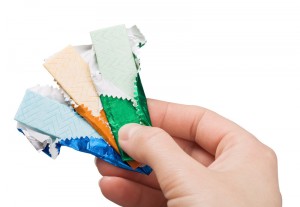September 18th, 2017
This year, the American Academy of Pediatrics released new recommendations advising parents to limit fruit juice consumption for children of all ages. The recommendations advise that:
- Infants should not drink juice AT ALL before the age of one year old, unless it is clinically indicated by a doctor.
- Toddlers ages 1-3 should be restricted to no more than 4 ounces of juice daily.
- Children ages 4-6 should be limited to 4-6 ounces of juice daily.
- Children ages 7 and older should have no more than 8 ounces of juice each day.
Juice should be seen as a "treat" or extra. The high sugar content (whether it be natural, organic, or artificially flavored) and acidity greatly outweigh the minimal nutritional value.

It is crucial that toddlers not be given easy access to juice through the use of bottles or sippy cups; these types of containers allow them the convenience of consuming juice throughout the day. Repeated exposure to carbohydrates (sugars) can lead to tooth decay. Toddlers should not be given juice at bedtime and all children should brush their teeth before going to bed each night. Children should not have anything to eat or drink between brushing their teeth and going to bed besides water.
For parents who want their children to enjoy the taste the fruit and benefit from the nutrients that fruit provides, the best option is to consume actual whole (or mashed/blended) fresh fruit.
Tags: cavities, children, Dr. Lauren Jacques, Dr. Richard G. Jacques, Jacques Dentistry, oral hygiene, brush, dental hygiene, decay, diet and nutrition
Posted in Health and Well-being, Nutrition, Children | No Comments
November 2nd, 2015
You may have read about us promoting the oral health benefits of the Daily 4: brushing, flossing, rinsing, and chewing sugar-free gum that sweetened with xylitol. But what exactly is xylitol?

Xylitol is a naturally occurring alcohol that can be found in most plant material. It is often extracted from birchwood. Xylitol can be used as a sugar substitute in toothpaste and mouth rinses, as well as in foods such as candy and gum. Most importantly, it helps to prevent cavities from forming.
When you consume foods with sugar, the bacteria in your mouth feed off of the sugar and multiply. The growing bacteria produce acids that eat away at the enamel on your teeth causing tooth decay and the formation of cavities. In contrast, xylitol does not breakdown the same way as sugar and cannot be consumed by the bacteria. It helps neutralize the acids in your mouth, which helps stop tooth decay from occurring, and prevent bacteria from sticking to your teeth.
Cavity formation can be greatly hindered by regularly using xylitol containing products. Some commons products are toothpaste and mouth rinses; xylitol can also be found in chewing gum and candies. By using the products several times throughout each day, your oral health can be positively impacted. The most effective benefits are seen with using xylitol five times a day.
As helpful as xylitol is to your oral health, it should also be noted that some users initially experience diarrhea and intestinal gas, but these side effects usually subside over time. More importantly, the side effects for pets should be duly noted. The small amount of xylitol that is found in consumer products is extremely toxic to both dogs and ferrets; they can experience sudden drop in blood sugar, seizures, liver failure, and even death. So just like other health products made for humans, keep your xylitol products away from your pets!
Used properly, xylitol is a great and effective addition to your oral health routine. Switching to chewing gum sweetened naturally with xylitol is an easy and convenient way to implement these benefits. Be sure to look for xylitol on the ingredient list and for the ADA seal of approval on the package!
Tags: cavities, Dr. Lauren Jacques, Dr. Richard G. Jacques, Jacques Dentistry, oral hygiene, sugar, chewing gum, xylitol, ADA, bacteria
Posted in Nutrition, Oral Hygiene | No Comments




